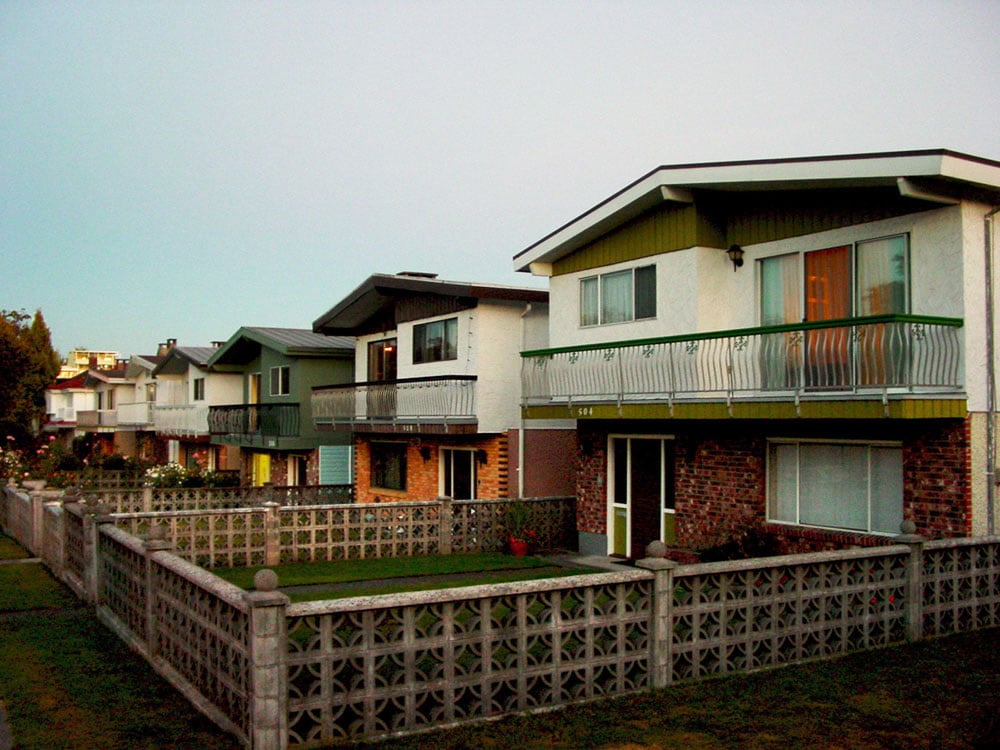As medical students, we learn every day about incredible new technologies introduced to improve health and save lives.
In recent years, physicians have used custom-made immune cells to fight aggressive cancers, grafted an entire face for people with severe injuries and even transplanted stem cells to cure three patients of HIV — a condition previously thought to be incurable.
Despite these advances in medical science, another major health challenge is still waiting to be solved: homelessness and housing precarity. It’s estimated that 23,000 people a year in B.C. experience homelessness, and this number is on the rise across several jurisdictions.
People facing homelessness are at an increased risk of developing acute and chronic health conditions, such as mental health and substance use issues, infectious and non-communicable diseases, illnesses linked to inadequate nutrition and traumatic brain injury.
Exposure to the elements — rain, cold and heat — both cause and aggravate these health problems. Homelessness also presents unique barriers to accessing health services, delaying care. For some, that can mean the difference between life and death.
The health consequences of housing precarity are not felt equally across all populations and disproportionately impact equity-deserving groups. LGBTQ2SIA+ individuals are estimated to comprise up to 40 per cent of homeless youth. Indigenous people constitute about six per cent of the population of B.C., but they represent between 30 and 40 per cent of the homeless population in the province.
Individuals involved in sex work and newcomers to Canada experience discrimination when seeking housing, and the availability of housing for older people on low incomes is of increasing concern.
Housing precarity also exacerbates existing social issues, such as the criminalization of certain populations and the stark inequities produced by racism and colonialism.
People in B.C. become and remain homeless, in many cases, because the cost of housing is prohibitive. The average monthly rent for a one-bedroom apartment in Vancouver is over $2,100. That’s more than five times the shelter allowance for an individual on income or disability assistance.
The supply of housing for individuals on low incomes also remains extremely limited, and conditions in these facilities are often inconsistent with public health and safety. In the absence of robust protections for renters, the constant threat of eviction looms over and adds stress to tenants’ lives.
Homelessness and housing precarity are major risk factors for mental and physical illness in this province and will affect the health of our current and future patients.
But it doesn’t have to be this way. Studies from around the world and here in Canada show that prioritizing housing for people experiencing homelessness is effective at reducing hospitalizations and ER visits as well as improving functioning and general quality of life.
There are significant health gains to be made by providing affordable housing that offers varied levels of support, focuses on multiple dimensions of wellness and reflects dignity and choice. Estimates suggest that providing homeless individuals in this province with adequate housing and support could save the province approximately $200 million each year.
But even more important than the economic argument for housing justice is the moral one. While home purchase prices reach unprecedented highs in B.C., a lack of stable, dignified and affordable housing for those on low incomes is causing preventable illness and suffering.
Housing is a human right enshrined in the United Nations International Covenant on Economic, Social and Cultural Rights, to which Canada is a signatory. Prime Minister Justin Trudeau has himself recognized housing as a human right in this country — an obligation that both B.C. and Canada are failing to live up to.
In taking bold action to eliminate housing precarity and homelessness in this province, the B.C. government has an opportunity to protect health and support the fulfilment of human rights, making a cost savings in the process. And unlike HIV and cancer, the cure for B.C.’s housing crisis won’t require much in the way of new technology and innovation: it’s already clear what needs to be done.
As the B.C. Legislative Assembly sits this month, we’re calling on the provincial government to stop evictions and strengthen tenants’ rights, to address the mismatch between social assistance and the current costs of housing and to invest in the provision of low-income housing that protects dignity and choice.
This means strengthening key pieces of legislation to protect against discriminatory evictions based on poverty, substance use or health history and placing vacancy control on low-income and affordable housing units, similar to what has been implemented in Vancouver.
It means increasing the shelter allowance for people on disability and income assistance, as the current rate of $375 per month is far too low to secure decent, stable housing.
It means investing in the financing, construction and operation of a minimum of 10,000 new units of low-income and affordable housing each year — housing that can meet people’s unique needs, whatever their health or social circumstances may be.
And it means doing so with the kind of urgency that the situation merits. At 40 to 49 years, the median life expectancy of a person experiencing homelessness in B.C. is roughly half the 83 years that a stably housed individual can expect to live. Considering the years of life lost to homelessness in our communities, there’s not a second to waste.
We’re asking our elected leaders to treat homelessness and housing precarity like the urgent health and human rights issues that they are. Just as people need access to safe and dignified care for the good of their health, they also need a stable place to call home. ![]()
Read more: Health, BC Politics, Housing
















Tyee Commenting Guidelines
Comments that violate guidelines risk being deleted, and violations may result in a temporary or permanent user ban. Maintain the spirit of good conversation to stay in the discussion.
*Please note The Tyee is not a forum for spreading misinformation about COVID-19, denying its existence or minimizing its risk to public health.
Do:
Do not: